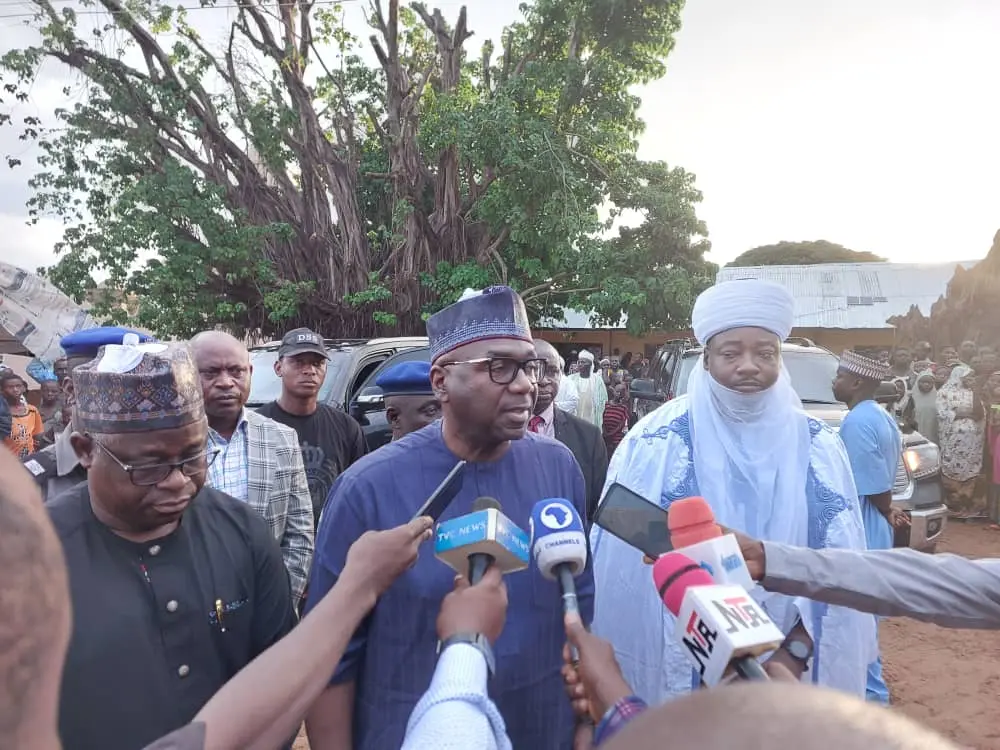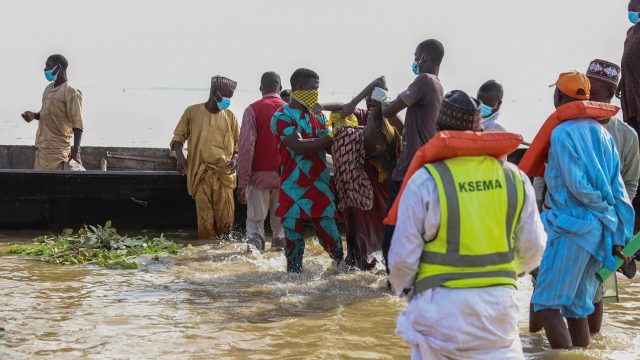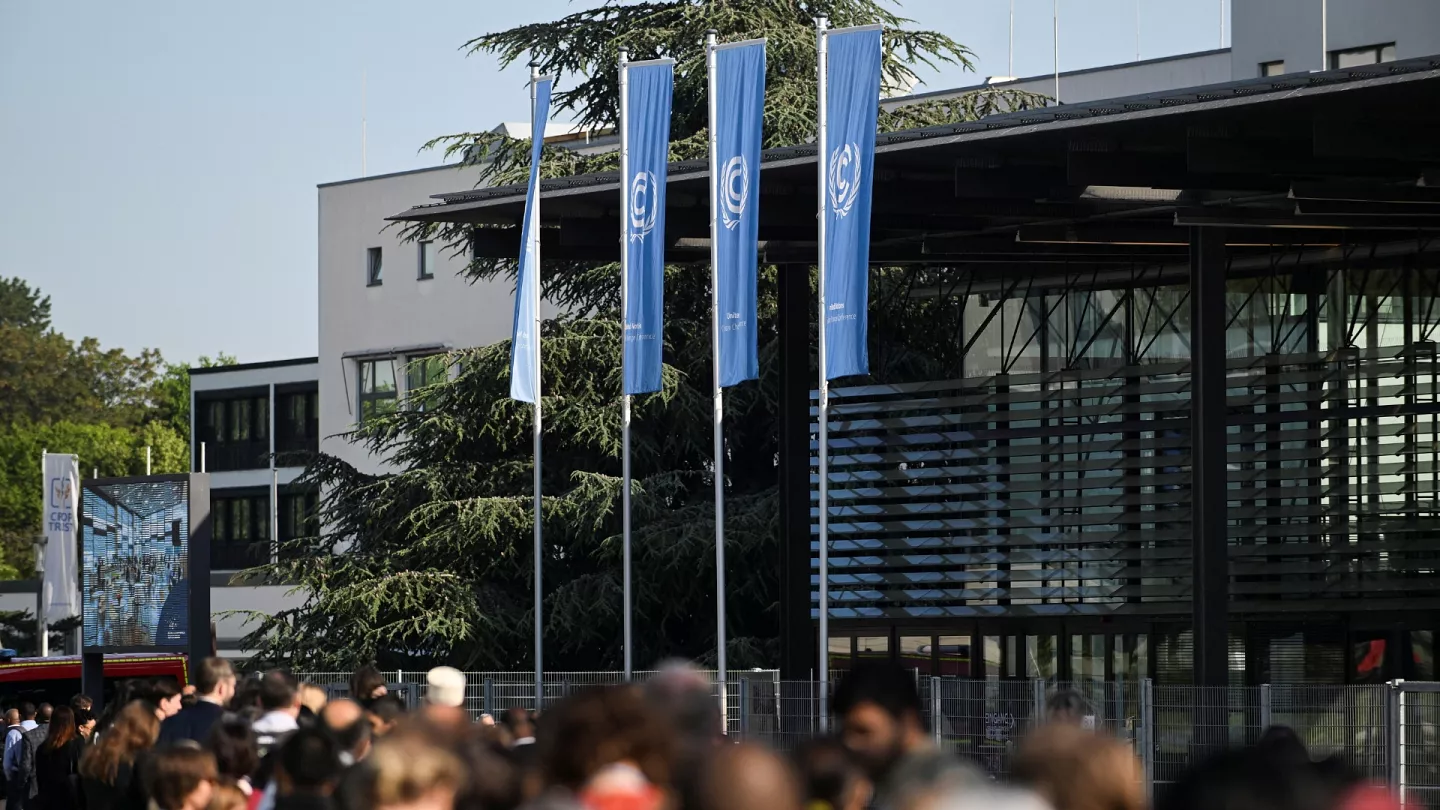The Director General, Nigerian Safety Investigation Bureau (NSIB), Akin Olateru, says 106 fatalities were recorded in the Kwara boat mishap that took place late Monday night.
The DG who made this disclosure during a press briefing in Abuja on Thursday, June 15, revealed that a total of 144 passengers were rescued.
He stated that the NSIB is currently carrying out an investigation into the root cause of the unfortunate accident.
Olateru explained that the boat capsized with about 250 passengers on board, traveling from Egboti village in Niger State to Kwara’s Patigi district.
The NSIB boss appealed to critical stakeholders and the general public to provide vital information that will help the investigation.
Such river accidents are unfortunately becoming common across the country.
Last month, 15 children drowned and 25 others went missing after their overloaded boat capsized in northwest Sokoto State as they were on their way to collect firewood.
Almost exactly a year earlier, another 29 children from a nearby village also drowned in the same river as they were on a trip to collect firewood for their families.
During massive flooding in the rainy season last December, at least 76 people drowned when their boat went down in a swollen river in southeastern Anambra State.
With poor road infrastructure a frequent problem and kidnapping for ransom a major issue along some highways, riverboat travel for transport and trade is common in various communities across the country.
The Niger River is West Africa’s main waterway running in a crescent through Guinea to the Niger Delta and is a key trade route for some countries.
The National Inland Waterways Authority has tried to ban night-time sailing on rivers to stop accidents and says overloading ships is a criminal offense, but skippers and crews often ignore the regulations.
Reacting to the latest boat mishap, President Bola Tinubu while expressing sadness over the loss, urged the Kwara State Government and relevant Federal Government agencies to look into the circumstances surrounding the boat accident.
The president also promised that his administration would look into the challenges of inland water transportation in the country to ensure the matter of safety and operational standards are strictly adhered to.
He added that immediate relief and necessary assistance should also be provided to the survivors and families of victims.
Kwara Government rolls out safety guidelines
Kwara State Governor AbdulRahman AbdulRazaq on Wednesday led a government delegation to Patigi to commiserate with families affected in the Monday night boat mishap, in which dozens have been confirmed dead.
Accompanied by Senator Sadiq Umar (Kwara North), House of Assembly member for Patigi State Constituency Hon. Muhammad Kareem, and Hon. Ahmed Adam Rufai, AbdulRazaq first headed to the palace of the Etsu Patigi who then joined the Governor to visit the riverine communities affected in the accident.

“It is a sad event. We commiserate with our people in Patigi Emirate, including the Etsu Patigi Alhaji Ibrahim Umar Bologi II. We are deeply saddened by the event,” AbdulRazaq told reporters on the sideline of his visit to Kpada and Duro, the headquarters of Ebu and Dzakan settlements whose residents died in the incident.
“Measures will be taken as we are having discussions with Nigeria Inland Waterway Authority (NIWA) on the enforcement of safety codes. We will also be sending a team to Lagos State on how their waterways law works.
“Our immediate step is to deliver at least 1000 life jackets to support safe travels on the water in the area.
“In addition to whatever safety measures that are in place, the government will design and roll out some statewide standard operating procedures (SOPs) for water travels to cover issues of boat serviceability, speed limits, loading limits, and wearing of life jackets by all passengers. This will be the new irreducible minimum.”
The government will also send to the parliament a proposed legislation that imposes punishments and fines for violations of the safety protocol, AbdulRazaq added.
“The government will also set up a body that oversees water transportation in the state. This body will complement the regulatory oversights of the National Inland Water Authority (NIWA) which has the statutory responsibility to enforce safety codes on jetties, loading points, boats, canoes, barges, life vests, among others,” according to a state government’s statement released after the visit.





